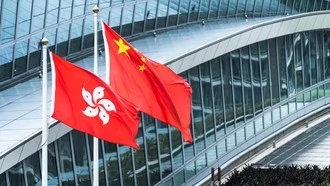Hong Kong seated arbitrations benefit from Court-Ordered Interim Measures.
On 6 March 2024, the Hong Kong International Arbitration Centre (HKIAC) released its case statistics for 2023. These included statistics on applications under the “Arrangement Concerning Mutual Assistance in Court-Ordered Interim Measures in Aid of Arbitral Proceedings by the Courts of the Mainland and the Hong Kong Special Administrative Regionâ€Â (Arrangement) that have been processed by the HKIAC since the Arrangement came into effect on October 1, 2019.
Hong Kong is the only common law jurisdiction outside of Mainland China, which allows parties to arbitral proceedings to apply to Mainland Courts for interim measures via a bespoke fast track application process.
The Arrangement
The Arrangement is only applicable to Hong Kong seated arbitrations. As the Arrangement does not apply to ad hoc arbitrations, the arbitration also needs to be administrated by a qualified arbitral institution. Every two years, there is an open application exercise for arbitral institutions to apply to become qualified under Article 2(1) of the Arrangement.
The current list of qualified arbitral institutions is:
- Hong Kong International Arbitration Centre
- Hong Kong Maritime Arbitration Group
- South China International Arbitration Centre (HK)
- eBRAM International Online Dispute Resolution Centre
- Asian-African Legal Consultative Organization (AALCO) Hong Kong Regional Arbitration Centre
- China International Economic and Trade Arbitration Commission (CIETAC) Hong Kong Arbitration Centre
- International Court of Arbitration of the International Chamber of Commerce (ICC) – Asia Office
Parties may apply to a Mainland Court for interim measures before an arbitral award is made. Applicants can also apply for pre-arbitration interim measures before the arbitral institution has accepted the arbitration case, provided that a letter from the arbitral institution certifying its acceptance is submitted to the Mainland Court within 30 days after the interim measure is granted, failing which the Mainland Court will discharge the interim measure. Having said that, all of the applications facilitated by HKIAC were made by the parties after the arbitration had been commenced.
To apply for interim measures after the commencement of the arbitration, the applicant will need to request the qualified arbitral institution administrating the arbitration to issue a Letter of Acceptance. The Letter of Acceptance, in essence, is the evidence showing to the Mainland Court that the Hong Kong seated arbitration has been accepted by a qualified arbitral institution. To request the Letter of Acceptance, the applicant will need to provide the Hong Kong qualified arbitral institution with a copy of the application (see below) and supporting documents that the applicant intends to submit to the Mainland Court.
The application process under the Arrangement is fairly straightforward. Applicants can follow the template application documents (SPC Templates) and the detailed guidance in the Note regarding the Interpretation and Application of the Arrangement published by the Supreme People’s Court of the PRC to prepare the application. Copies of the SPC Templates (in Chinese) are available here. HKIAC’s English translation of the SPC Templates is also available here.
After the arbitral institution issues the Letter of Acceptance, unless the Mainland Court requests the arbitral institution to transfer the application directly to the Court, the applicant can then submit the application together with the Letter of Acceptance to the Mainland Court. Based on the information published by the HKIAC, the average time taken by the Mainland Courts to issue a decision was 20.5 days from receipt of an application.
Under the Arrangement, the Mainland Courts have the power to order the following interim measures:
- Property preservation: an order to preserve assets from being dissipated or transferred, effected by seizure, detainment, freezing of property, etc. in order to ensure the enforceability of an arbitral award;
- Evidence preservation: an order to prevent evidence from being lost or destroyed;Â and
- Conduct preservation: an order requiring a party to take specific action or prohibiting a party from taking a specific action.
Based on the HKIAC’s statistics, most of the applications were made for the preservation of assets. As of 1 May 2024, the total value of assets preserved under the Arrangement amounted to RMB 16.3 billion (approximately USD 2.3 billion).
Pursuant to the Arrangement, the applicant can make the application for interim measures to the Intermediate People’s Court of the place of residence of the Respondent or the place where the property or evidence of the application’s subject matter is situated.
Comment
According to HKIAC’s statistics, applications were made to 40 different Mainland Courts across the country since the Arrangement entered into force.
In 2019, Hill Dickinson was the first law firm to successfully obtain an interim measures order from the Shanghai Maritime Court in aid of an arbitration administered by the HKIAC under the Arrangement. For that application, it only took the Court one business day to issue the first order under the Arrangement.
The Arrangement has proven to be an effective and efficient tool for parties to protect their position in disputes involving Chinese parties before a final award is issued.
The toolkit of the Arrangement is only available in respect of arbitrations seated in Hong Kong. Therefore, parties entering into agreements involving Chinese parties or assets should consider the benefits conferred by the Arrangement when negotiating arbitration agreements and provide for Hong Kong seated arbitration.
For further details on our dispute resolution law services, please contact us or a member of our dispute resolution team.



